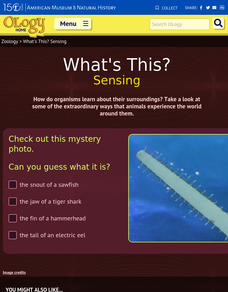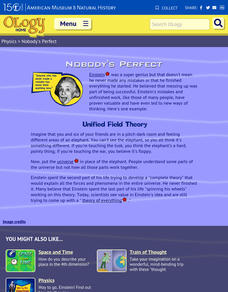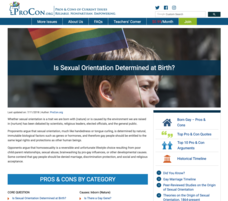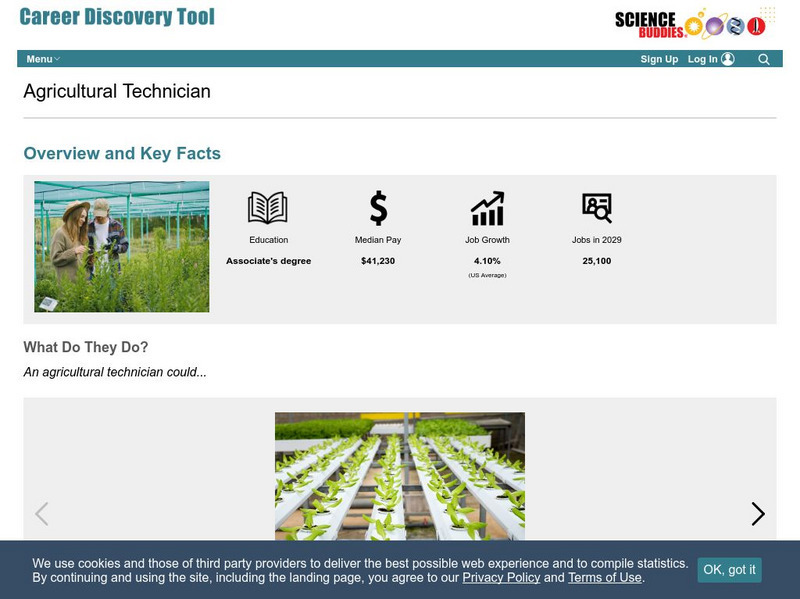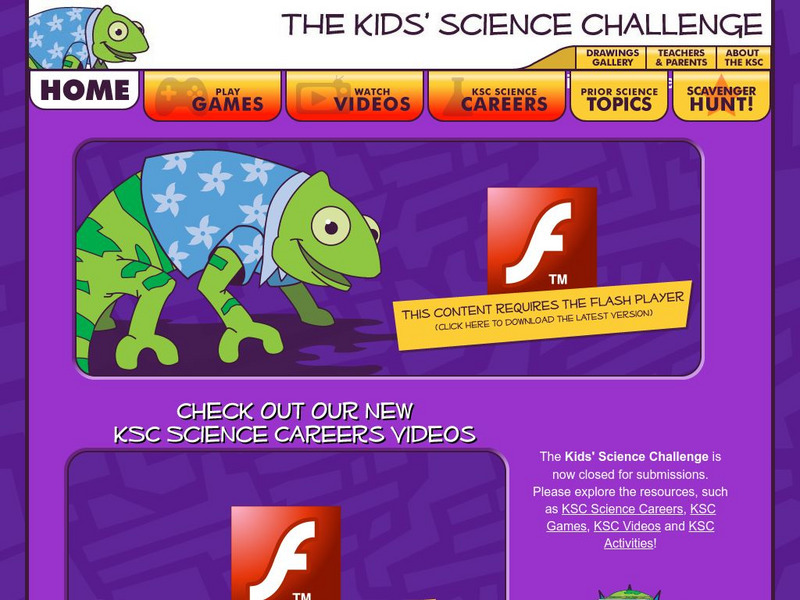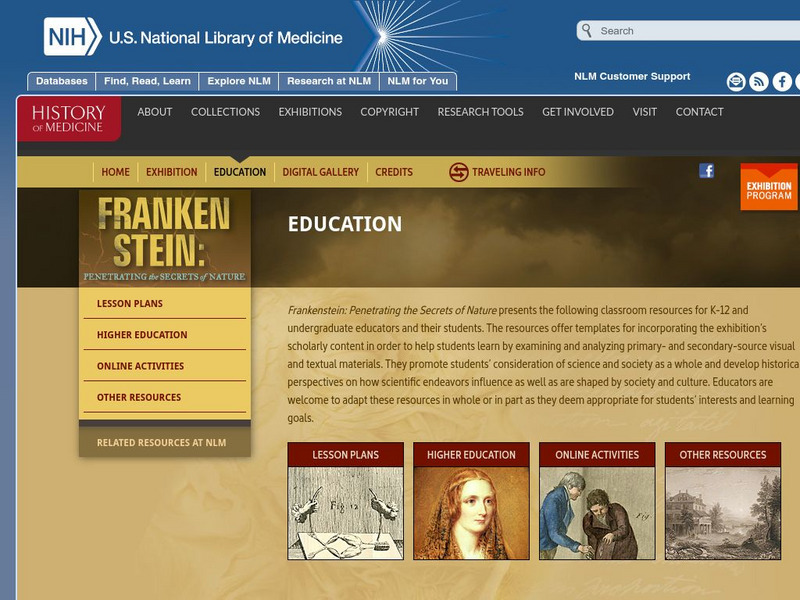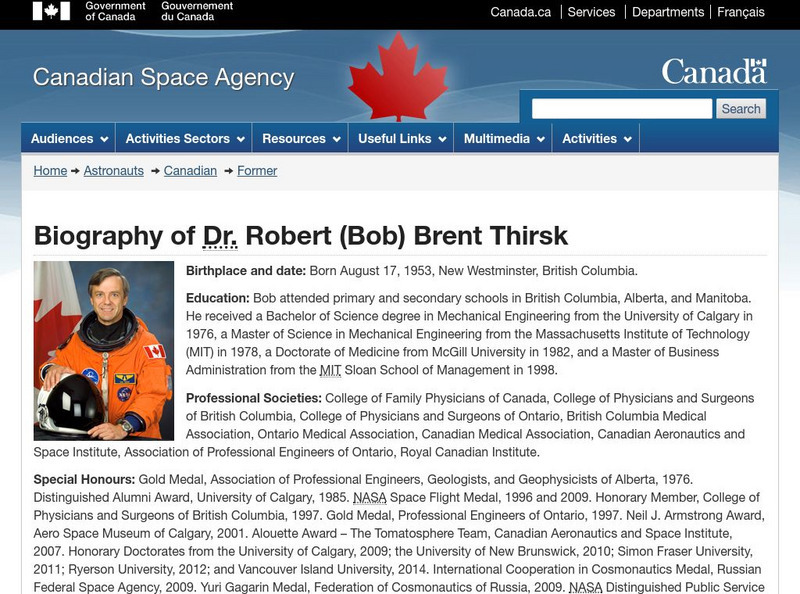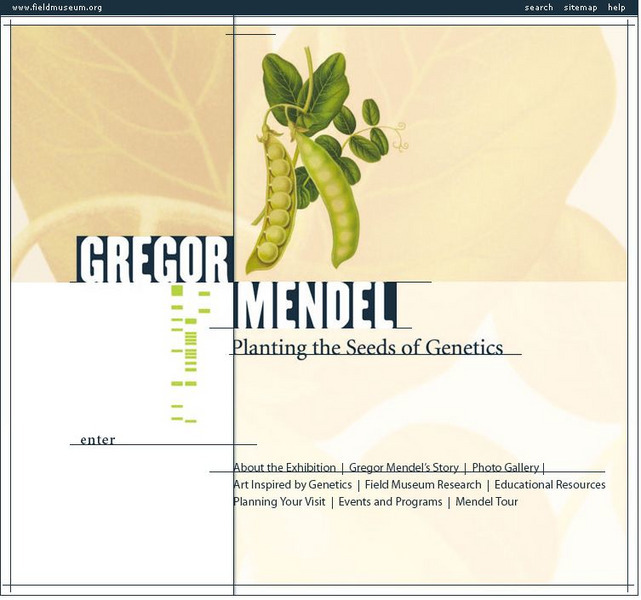American Museum of Natural History
What's This? Sensing
There is a scallop that relies on sight so much that it actually has more than 100 eyes! There are many species that rely heavily on one sense or another. An online interactive resource has youth read about several of these animals. The...
American Museum of Natural History
Space and Time
Carve out some time to learn about space-time. Young scientists use a remote learning resource to read up on the relationship between space and time. They consider the idea of relativity, see how objects with a large mass can bend space...
American Museum of Natural History
Nobody's Perfect
Even Einstein made mistakes, you know. A remote learning resource explains how scientists are sometimes unsuccessful. Pupils learn about Einstein's failed quest to find a unified field theory that explained the entire universe.
Curated OER
Born Gay
Is a person's sexual orientation determined at birth? With the informative website, scholars prepare for a debate about the topic. They learn the top pro and con arguments and read through a historical timeline of homosexuality. They...
American Museum of Natural History
Being an Archeologist: Chuck Spencer
Meet Chuck Spencer, an archeologist who studies the Zapotec people who lived in the Valley of Oaxaca, Mexico over 2000 years ago. Spencer shares in print his response to questions posed by kids.
Science Buddies
Science Buddies: Career Profile: Agricultural Technician
As the world's population grows larger, it is important to improve the quality and yield of food crops and animal food sources. Agricultural technicians work in the forefront of this very important research area by helping scientists...
Other
Kids' Science Challenge: Fun Educational National Competition!
A nationwide annual science competition for elementary and intermediate school students. Winning students are given the opportunity to work with a scientist to help bring their idea to life. Contest prizes include science trips, science...
The Franklin Institute
Franklin Institute and Science Museum: First Flight
Experience the first flight, through words, pictures, and actual quotes from the Wright Brothers about their real life experiences prior to, during, and after the successful flight.
Other
Latter Rain Page: Roger Bacon's Life, Works, Philosophy
Well-rounded biography of Roger Bacon with very clear explanation of his philosophy. The focus is on his belief that knowledge can be attained through scientific experiments and through divine inspiration. Includes brief excerpt from...
National Institutes of Health
National Library of Medicine: Electricity, Frankenstein, & the Spark of Life
Using an online exhibition, investigate how Mary Shelley's horror science fiction story, Frankenstein, reflects the knowledge and studies of electricity, and how those fictional ideas are used in modern medicine.
PBS
Pbs Learning Media: Your Brain and Moral Decision Making
In this segment from Curious, scientists conduct an experiment to learn how different areas of the brain are stimulated when making moral decisions.
NASA
Nasa: Oceanography
Join NASA in its study of oceanography and learn about the Earth system, the physical ocean, and life in the ocean. Try out the Giovanni: Earth Data Visualization Tool and access satellite-derived data to enhance the learning experience.
PBS
Pbs Learning Media: Biome in a Baggie
This ZOOMSci video segment shows how to create self-contained environments and explore how plants grow under different conditions. [3:24]
Center for Innovation in Engineering and Science Education, Stevens Institute of Technology
Ciese Collaborative Projects: Down the Drain: How Much Water Do You Use?
How much water do you use everyday? Find out in this engaging investigation, where you compare your water usage with your classmates and other people around the world. An exploration filled with lots of math and science that students are...
Other
The Futures Channel: Problem Solving
"Connecting learning to the real world" is the goal of the Futures Channel. Through the use of short videos, teachers can integrate real-world examples of how math and science are used in everyday life. Complete teaching guidelines...
Government of Canada
Canadian Space Agency: Canadian Astronauts Brent Thirsk
Dr. Thirsk is scheduled to be a member of Expedition 20 in 2009 to the International Space Station. He will live and work on the ISS for up to six months; an extended stay this is a Canadian first. His duties will include robotic...
US Environmental Protection Agency
Epa: Acid Rain
What are the causes and effects of acid rain in our environment? To learn more about this serious environmental issue check out this website. Contains a page with several acid rain activities for students.
The Field Museum
Field Museum: Exhibits: Gregor Mendel: Planting the Seeds of Genetics
Explore this online exhibit highlighting Gregor Mendel's contributions to the science of genetics. Read about Mendel's life, view pieces of art inspired by genetics, and find a wealth of resources for planning further research on...
Other
The Futures Channel: Proportional Reasoning
"Connecting learning to the real world" is the goal of the Futures Channel. Through the use of short videos, teachers can integrate real-world examples of how math and science are used in everyday life. Complete teaching guidelines...
